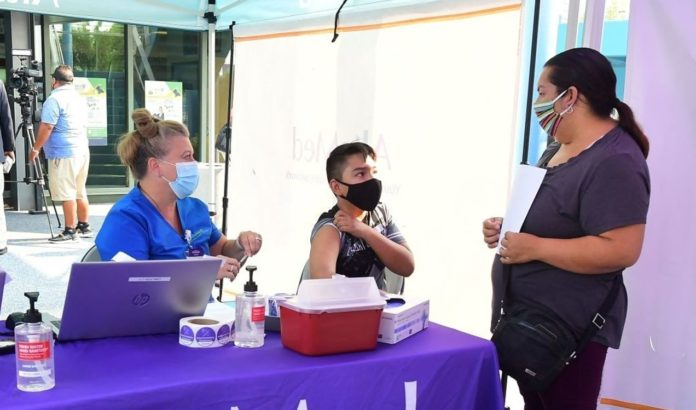New studies reveal two main risk factors that double the risk of severe covid-19.
Genetic and immunological defects increase the severity of Covid-19 and that points to defects in the TLR7 gene and autoantibodies against type I interferons
Defects in the gene TLR7 in people under 60 years and the presence of autoantibodies against type I interferons in older increase the severity of the Covid-19, according to two international studies.
The studies, led by the Rockefeller University in New York and the Necker-Enfants Malades Hospital in Paris, were published in the journal Science Immunology.
The first of the studies states that patients with mutations or deficiencies in the TLR7 gene are more likely to get a severe or critical Covid-19 diagnosis, especially in men under the age of 60.
TLR7 is a gene in the immune system that contributes to the production of type I interferons (IFN-I), key to giving an immune response against SARS-CoV-2, so if it suffers a defect it increases the chances of presenting a serious diagnosis.
In addition, TLR7 is a gene that is on the X chromosome and therefore has a role in men and only occasionally in women, which could explain the worse prognosis of COVID-19 in men compared to women.
The study analyzed 1,202 patients, 20 of whom, aged between 7 and 71 years, had deficiencies in TLR7 and had not suffered previous serious diagnoses or illnesses.
The second study was based on the experience that age is the main risk factor for COVID-19 and the data showing that the risk of hospitalization and death from pneumonia doubles every 5 years, and has confirmed that this increase in risk is explained, at least in part, by the presence of autoantibodies against type I IFN, that is, the development of an autoimmune response against type I interferons itself.
The results show that, overall, 13.6 percent of patients with Covid-19 have this type of autoantibodies, a percentage that increases to 20% in patients over 80 years of age with this condition.
According to the study, these autoantibodies are a cause and not a consequence of SARS-CoV-2 infection, and in people under 70 years of age, between 0.17 and 1.1 percent of people have autoantibodies and, in people over the age of 70, are between 1.4 and 4.4 percent, while between 80 and 85 years there is an increase of between 4.2 and 7.1 percent.
For this analysis, the researchers studied blood samples from 3,595 critical COVID-19 hospitalized patients, 623 critically ill patients, 1,639 patients with mild or asymptomatic infection, and 34,159 healthy individuals to study whether they had this type of autoantibody.
The authors of the two studies have insisted on the importance of knowing the factors that influence the response to SARS-CoV-2 and hope that it will open the door to targeted therapies based on the profile of each patient.
Photo by FREDERIC J. BROWN/AFP via Getty Images
